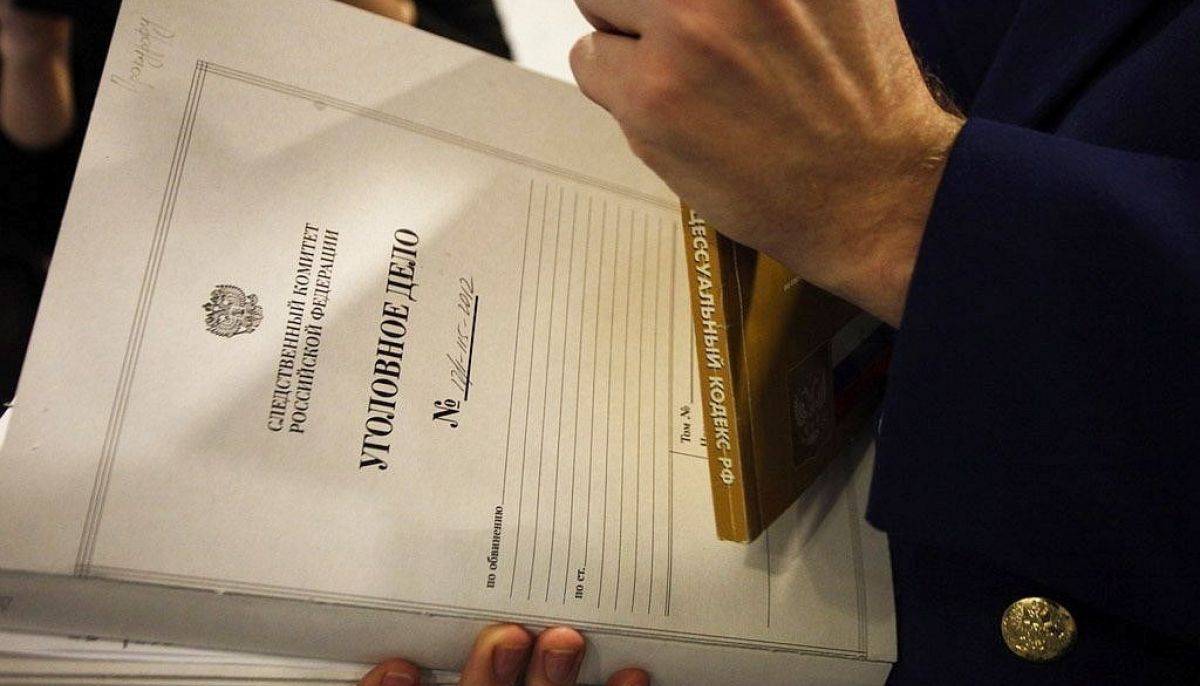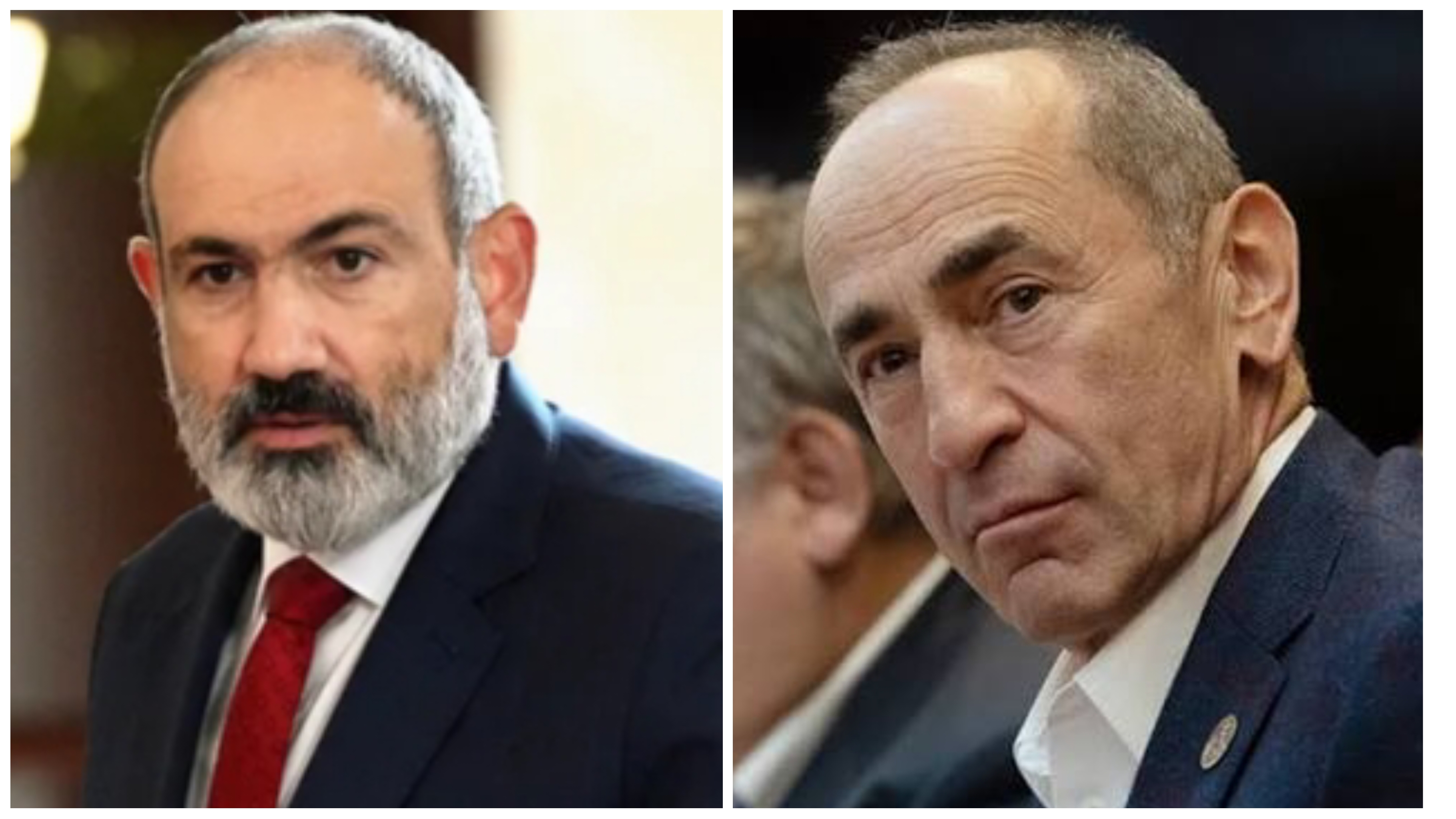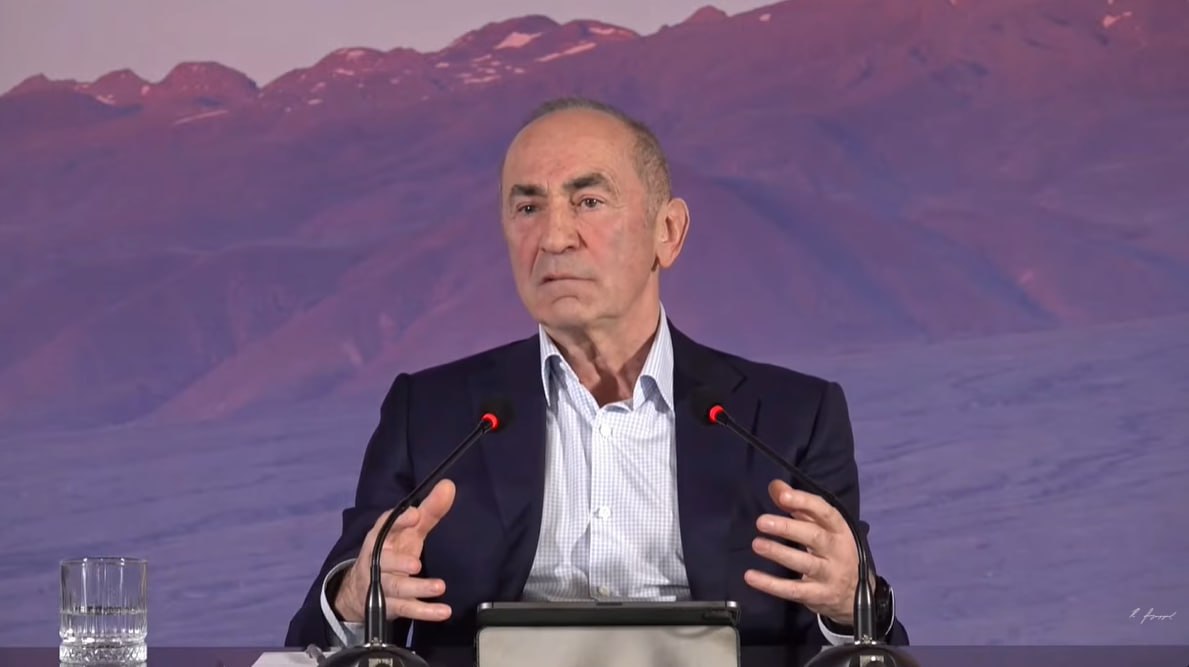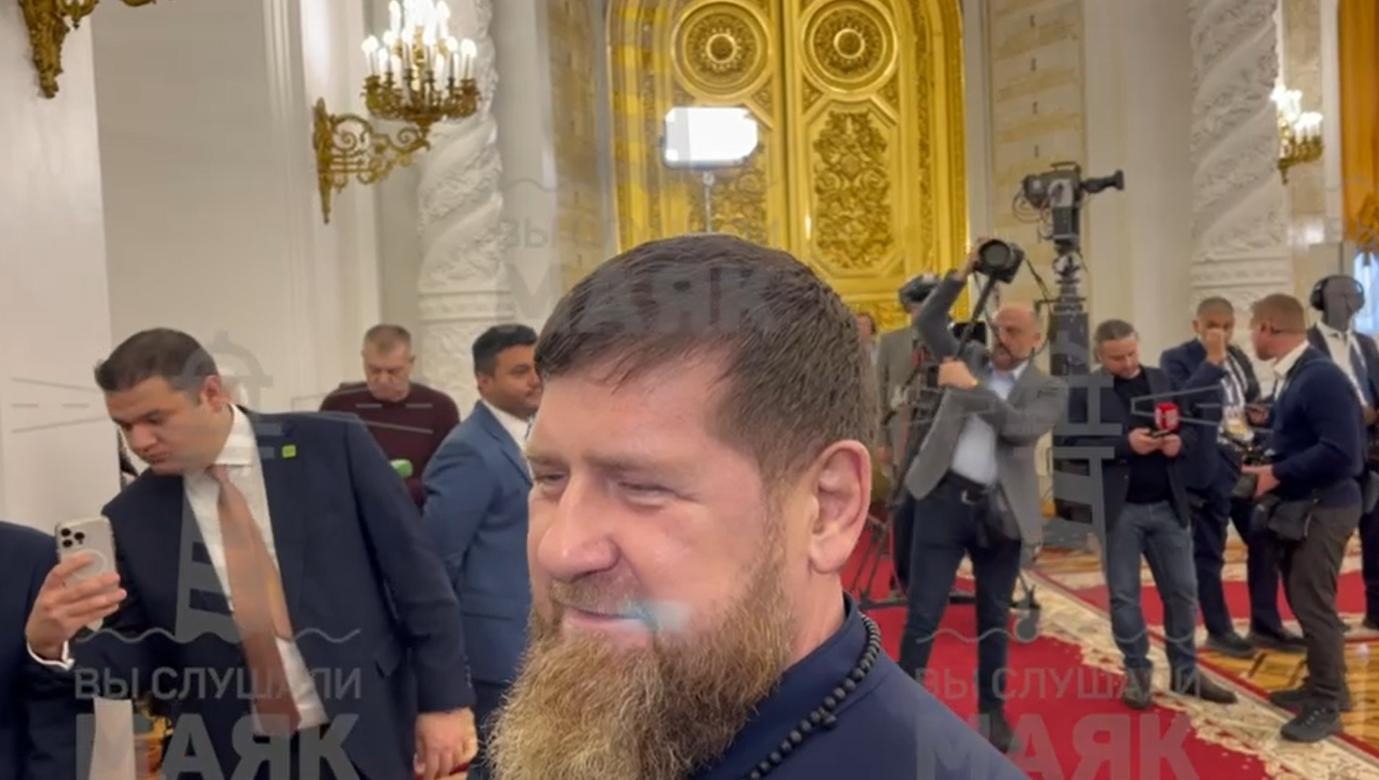A second administrative case has been opened in Chechnya in Russia for searching for "extremist materials" online. The case was registered by the Naursky District Court, and local resident Isa Magomadov is listed as the offender.

July 2, 2001
***
Early in the morning, units of the federal forces began a "cleansing operation" in the village of Sernovodsk. According to the official version, its purpose was "to detain the militants who had staged an explosion of a UAZ car, as a result of which five policemen from Kemerovo were killed." Representatives of the HRC "Memorial", who visited the scene of the event, testify that the operation, in essence, grew into a punitive action. Contrary to the order and.about. commander of the OGV (s) No. 145, it was carried out without interaction with local authorities. Moreover, the head of the administration of the village, Vakha Arsamakov, and the head of the administration of the Sunzhensky district, Khizir Vitaev, were locked up by the military in their offices and were not allowed to leave for ten hours. All employees of the village police department and traffic police officers were disarmed and detained.
Sernovodsk is a large village located on the border with Ingushetia. Its population before the war exceeded 15 thousand people. By the time the “cleansing” was carried out, there were a large number of forced migrants in the settlement. More than 4,000 people lived in temporary accommodation centers (TsVR), equipped in the premises of an agricultural technical school and in railway cars. There are several times more refugees in private homes.
Since the night, Sernovodsk was surrounded by military equipment, and in the morning all rural intersections were also blocked by it. The side numbers of the armored personnel carriers and the registration plates of the vehicles were either smeared with mud and paint or covered with a tarpaulin. It was also impossible to determine the departmental affiliation of the persons who arrived for the “cleansing”: they were wearing camouflage uniforms without military insignia and chevrons. They themselves did not introduce themselves, responding to the relevant demands of the residents with threats or abuse.
Divided into groups of 20 to 30 people, the military began to inspect households. At the same time, they did not disdain the robbery of the property of local residents and extortion of money. Bursting into one of the yards, they first of all drove the owners out into the street and took away the things they liked from the premises, broke and cut furniture, and threw attics and basements with grenades. In the village, apparently, the provision of food was also carried out: chickens, turkeys, sheep were killed everywhere, potatoes were dug up and all this was loaded into armored personnel carriers and Urals. They shelled vegetable gardens with plantings of corn, set fire to haystacks. The pharmacy was robbed.
Obviously, different units took part in the “cleansing”. Those who acted in the center of Sernovodsk were especially outrageous. Here, the military destroyed personal and state vehicles if the owners did not manage to pay the ransom on time. For example, in the courtyard of the Mutsievs' house, two cars were shot from automatic weapons. Despite the fact that the documents were in order, the Madaevs were seized with a Zhiguli car VAZ 21099.
Television and video equipment, a diesel generator, a pump for pumping water and construction materials were taken out of the house belonging to the famous athlete, world champion in weightlifting Adam Saidulaev. Gold women's jewelry was stolen from the Ediev family.
In the village, no one offered armed resistance to the military. Nevertheless, they threw grenades at the houses of the Movsarovs, Batashevs, Salamovs, Arsanukaevs, Ramazanovs, Saidulaevs, Altamirovs.
An attempt was made to detain 25-year-old Mamed Umarkhadzhiev, the owner of the store, on Shkolnaya Street. Two saleswomen actively stood up for him, convincing the military that he was a peaceful person. Leaving him alone and feeding the service dogs chicken and beef sausages, they loaded industrial and food products available in the store into the APC. Just before leaving, they pulled out a wallet with money from the pocket of a young entrepreneur.
In all yards, the military tried to detain men between the ages of 14 and 60. But they could have redeemed themselves. A clear fee was established: if all the documents are in order and the registration is local, it was necessary to pay 200 rubles. If a person is registered in another locality, which was typical for forced migrants living in TACs, then already 500 rubles. If the temporary certificate is expired or not all photos are pasted into the passport - 1000 rubles.
Several hundred (according to some sources, up to 700) people were detained, including two women: 40-year-old Marem Mazaeva, and Mosha Mukhudievna Gazmagometova, born in 1964, who got into the car herself, not wanting to let her alone with the military Sultan's brother On the second day, all three were released. Among the detainees were two sons (14 and 18 years old) of the head of the village administration Vahi Arsamakov. A 90-year-old man, Abdul-Kadyr Gubaev, was also detained. The military took away 81 forced migrants, leaving only four very elderly men in their accommodation centers.
A young resident of the Grozny village of Chernorechye was also taken away from the agricultural technical school (he asked not to give his first and last name). Having escaped detention during the “cleansing” at home, at the request of his relatives, he left for Sernovodsk and settled in the TsVR. One of the soldiers recognized him and asked: “What are you doing here?” According to the young man, who wished to remain anonymous, it was he who came to him with a document check. In his village, they did not touch him, but here, like other people with a non-local residence permit, they forced him to climb into the back of the Ural and took him away.
Apparently, immediately after Chernorechye, the military and policemen who carried out the “cleansing” there were transferred to the western regions of Chechnya. The operation in Sernovodsk, most likely, was planned in advance. The car bombing, which officials claimed killed members of the Kemerovo Internal Affairs Directorate, if not a provocation to justify harsh actions against the local population, happened just in time.
The detainees were taken to the eastern outskirts of the village and between the mosque and the local MTF, with their hands behind their heads, they were forced to squat down. They were kept in this position for several hours. Everyone, including the old man Abdul-Kadyr Gubaev, had their shirts pulled over their heads so that they could not see anything. For the slightest movement, they beat me with rifle butts and feet. Their money was taken away, their rings and watches were taken off. Some had their identity papers torn.
A "torture room" was set up next to the MTF. The people detained in the village were led into a space fenced with tarpaulin and armored personnel carriers, where a power source, tools and devices were installed, with the help of which the Russian military tortured and maimed them.
Everyone was asked the same questions: is he a Wahhabi, does he know the militants, what does he know about Basayev and Khattab? Those interrogated were severely beaten, especially those who had any scars on their bodies, even those received in childhood.
Some were deliberately poisoned by dogs, tortured with electric current, putting metal rings on their fingers with wires connected to them. For example, Alikhan Basaev, Islam Eldiev, Ruslan Yasakov, Visingiri Madaev were subjected to such torture. On the latter, in addition, dogs were set on him, he received many bites. The son of the head of the village police department Vakha Susurkaev was also beaten. They stopped torturing Magomed Altamirov only after he reported that his brother was working as an assistant to Aslambek Aslakhanov, a deputy of the State Duma of the Russian Federation.
But beatings, electric shocks, broken ribs - this was not the worst thing that people had to experience during the "cleansing". There was another crime that they only talk about in whispers. The population of Chechnya is already accustomed to the fact that the Russian military uses various methods of moral, psychological and physical suppression of a person, insulting national and personal dignity, but what happened in Sernovodsk shocked everyone. According to information from villagers who asked not to be named, it became known that several men had been raped. This happened under the following circumstances.
From the tents set up not far from the place where the detainees were squatting, the screams of a woman began to be heard. It is not known whether she was from Sernovodsk or whether she was brought from another place. Nevertheless, the military, walking between the rows of people, began to provoke them into retaliatory actions.
One of the eyewitnesses of the incident describes it this way: “... When the screams of a woman were heard from the tent, the military approached us and began to say that we are not Caucasians and not men, because we allow our sisters and mothers to be raped. Several young people rose from the ground. The military seized them and took them in the direction where the armored vehicles were parked. Through a slit in the shirt pulled over my head, I saw how they, already tied to the armored personnel carrier, were being undressed. After some time, young people in the Chechen language began to beg us not to look in their direction.”
According to some reports, after the release of two young men tried to commit suicide. One of them died from a self-inflicted knife wound, the other was saved (their names and surnames are not given for ethical reasons).
In the morning, residents of the village began to approach the place where the detainees were tortured with a demand to stop lawlessness. By evening, a large crowd had already gathered there. With the help of smoke bombs, the military tried to drive them away. When this did not help, they began to shoot at the feet and over the heads of those gathered. The fire was fired from such a close distance that the fired machine gun shells hit the women.
This did not stop the villagers. Shouts began to be heard in the crowd of those gathered that the men should not be left overnight, that they must certainly be released, and if there is no other way, then by force. Some of the women took stones in their hands.
Apparently, this circumstance also affected the decision of the military to release most of the detainees. Around 22:00 they began to return home. But before that, they deliberately tried to direct them towards the village of Samashki, located 9 km from this place. Passing from one settlement to another during the “curfew” is a deadly occupation. You can wander into a minefield or run into secrets or ambushes put up by the military, from which they would immediately open fire on moving people. Therefore, the detainees themselves began to beg to be allowed to return to their village. With difficulty, but they succeeded.
All those who were released were forced by the military to sign in the register, where passport data were recorded. It was also said there that by seven o'clock the next morning they undertake to return to the same place on the mark.
Those who were able to pay for themselves were the first to return home. For one person, the military demanded 500 rubles. Those who did not have that kind of money with them spent several more hours on the field.
The military brought and threw Salambek Akhmudovich Amagov, 35 years old, on the side of the road next to the gathered women. He was in an unconscious state. When he was lifted up, blood gushed from his throat. His relatives took him to the Sunzha district hospital in the village of Ordzhonikidzevskaya (according to other sources, to Achkhoi-Martanovskoye). As a result of the beatings, Salambek Amagov's kidneys were damaged and his liver ruptured. He has a heart defect, two months before his arrest he underwent a course of treatment in a hospital. However, the warning about this did not stop the military, he was tortured, including with the help of electric current.
In the same days, the media reported on his death. Fortunately, this information was not confirmed: Salambek Amagov survived and returned home from the hospital after treatment.
But not all detainees were released. The military drove two white buses, the drivers of which they also took away from the village, lifted 38 people into the cabin and delivered them to the VOVD of the Achkhoi-Martan district. Many were released almost immediately. Ruslan Makhaev, a disabled child, who was only 1.30 cm tall, was kept the longest. He was released only on 8 July. In the building of the temporary department, he, as well as other residents of Sernovodsk brought there, was beaten, demanding to confess to planting a land mine.
Two people - Zelimkhan Usmanovich Umkhanov, born in 1972 (Kutalova st., 4) and Apti Abdurakhmanovich Isigov, born in 1978 (Pervomaiskaya st., 34) - disappeared without a trace. It is known that both were captured in their homes and put into a military vehicle "Ural" with a registration plate O 1003 KSH. The side numbers of the escort armored personnel carriers were smeared with mud, but in some places it dried up and moved away. Eyewitnesses of the detention of these people claim that the numbers 6 and 1 were present in the number plate of one of the military vehicles, and the second - 4, 0, 2 and 5 (or the letter H, and then 0, 2, 5).
During the arrest of Zelimkhan Umkhanov, the military called the commander on the radio, using the call sign "eighty-eighth". He called himself "the twelfth".
At the MTF, where the men were taken, Zelimkhan Umkhanov and Apti Isigov were not disembarked from the car. The day after the arrest, i.e. On July 3, during the “cleansing” of the Assinovskaya station, the inhabitants of this settlement saw them in the back of the same Ural. On Monday, July 16, the mothers of disappeared residents of Sernovodsk, accompanied by several dozen other residents of the village, left for Gudermes with the intention of meeting with Akhmad Kadyrov. The head of the interim administration of the Chechen Republic did not want to talk to them. According to these women, in a rude, insulting manner, he personally ordered law enforcement officers to push the crowd away from the building. In clashes with policemen, some of them received bruises and abrasions.
On July 19, relatives of Apti Isigov and Zelimkhan Umkhanov blocked the building of the local administration. To meet with them, General Ibragim Suleimenov arrived in the village, at that time acting. military commandant of the Achkhoy-Martan district. He asked for three days to familiarize himself with the circumstances of the case. However, he did not make a specific promise to find and release the young people.
Relatives applied to law enforcement agencies, the prosecutor's office, as well as to specific heads of law enforcement agencies. In particular, Zelimkhan Umkhanov's mother, Khalisat, wrote statements addressed to the head of the Internal Affairs Directorate of the Ministry of Internal Affairs of the Russian Federation for the Chechen Republic, Major General Sergei Arenin. Already on July 8, a criminal case was initiated (No. 27031 under Articles 286 Part 3, 127 Part 2, 161 Part 2, 167 Part 2 of the Criminal Code of the Russian Federation), which was transferred to the crime investigation department of the prosecutor's office of the republic. With the wording “due to the impossibility of detecting persons subject to criminal liability” (Article 195, part 3 of the Code of Criminal Procedure of the RSFSR), it was suspended there. It happened on June 12, 2002. As of the end of October 2007, the whereabouts of Apti Isigov and Zelimkhan Umkhanov could not be established.
On the night of July 3, a few hours after the release of the detainees, a mass exodus of civilians from Sernovodsk began. Along the railway, at the risk of stumbling into armed barriers and mines, on foot and in cars, they headed towards Ingushetia. This happened because, promising to wipe the village off the face of the earth "in retaliation for the death of policemen from Kemerovo (victims of the car explosion that occurred on July 1)", the military announced the continuation of the "cleansing" for the next seven days.
Along with the men were women with children aged 10 and older. Many mothers forcibly forced their sons to leave for the neighboring republic, convincing them that it was better to take refuge there than die or become crippled. During the night and the next day, up to 4 thousand people left the village. First, they reached the Satsita, Alina and Sputnik refugee camps near the Ordzhonikidzevskaya station, and then, fearing to stay together, they dispersed to different settlements.
These fears were not without foundation. On the night of July 4, law enforcement officers took away two Muzaev brothers from their home. They were taken to the Achkhoy-Martan VOVD, where, using beatings and electric shocks, they tried to force them to confess that it was they who planted the land mine. They were released a few days after the insistent demands of the prosecutor of the Achkhoy-Martan district, Sharpudi Abdulkadyrov.
The exodus from Chechnya to the neighboring republic continued in the following days, people began to leave the neighboring villages as well. However, starting from July 8, some residents began to gradually return home.
It should be noted that the "cleansing operation" began on the same day that the visiting session of the State Duma of the Russian Federation on the problem of forced migrants was held in Grozny. The chairman of the government of the Chechen Republic, Stanislav Ilyasov, expressed the opinion to the deputies that they lacked only funds to return people. However, it is clear that it is not only about money. By their actions, the military not only nullified all previous efforts in this direction, but also turned into refugees those who had never even thought about leaving for neighboring regions.
The events in Sernovodsk received a wide public response. Thousands of civilians who fled to Ingushetia found themselves in the field of view of workers of international humanitarian organizations and journalists. Messages about the new atrocities of the Russian military hit the front pages of newspapers, they started talking about them from TV screens. The villagers, who felt the attention of human rights activists and media workers, grew bolder. Many of them wrote statements to the prosecutor's office, in which they talked about the crimes committed against them: beatings, torture, robbery and damage to property. With the support of the inhabitants of the tent cities in Ingushetia, they held several protests.
The authorities were forced to react to the escalating scandal. A commission was set up to investigate the violations committed during the “cleansing”. It included both representatives of civil authorities, employees of the prosecutor's office and internal affairs bodies, and the military themselves. Among the latter, in particular, were acting. Military Commandant of the Chechen Republic, Major General Alexander Tretyakov, Deputy Commander of the Group of Internal Troops, Colonel Yevgeny Mozhaisky, acting military commandant of the Achkhoi-Martan district, General Ibragim Suleimenov.
The villagers themselves spoke about how the investigation was conducted in the following way: the members of the commission in armored personnel carriers and accompanied by armed guards went to the house of those who applied to the prosecutor's office and demanded that the applications be taken back. In a number of cases, among those who arrived, people recognized those who had tortured them during the “cleansing”. In particular, two police officers seconded to the Achkhoy-Martan VOVD from the Voronezh region were identified.
Simultaneously with the exhortations of the "complainers", an inspection of houses and outbuildings was carried out with the aim, as explained, "to detect explosives and ammunition." They offered to make amends for the damage. General Alexander Tretyakov himself, for example, paid off the owner of a private pharmacy for stolen medicines. Other members of the commission headed by him also came to the victims with an offer in exchange for money to take applications from the prosecutor's office to the victims' houses.
This form of "investigation" has borne fruit: many residents of Sernovodsk retracted their original testimony. They gave a receipt that they have no claims against the representatives of the Russian law enforcement agencies. By the end of the month, the work of the commission was finally curtailed.
From the book "People Live Here", Usam Baisaev, Dmitry Grushkin, 2006



